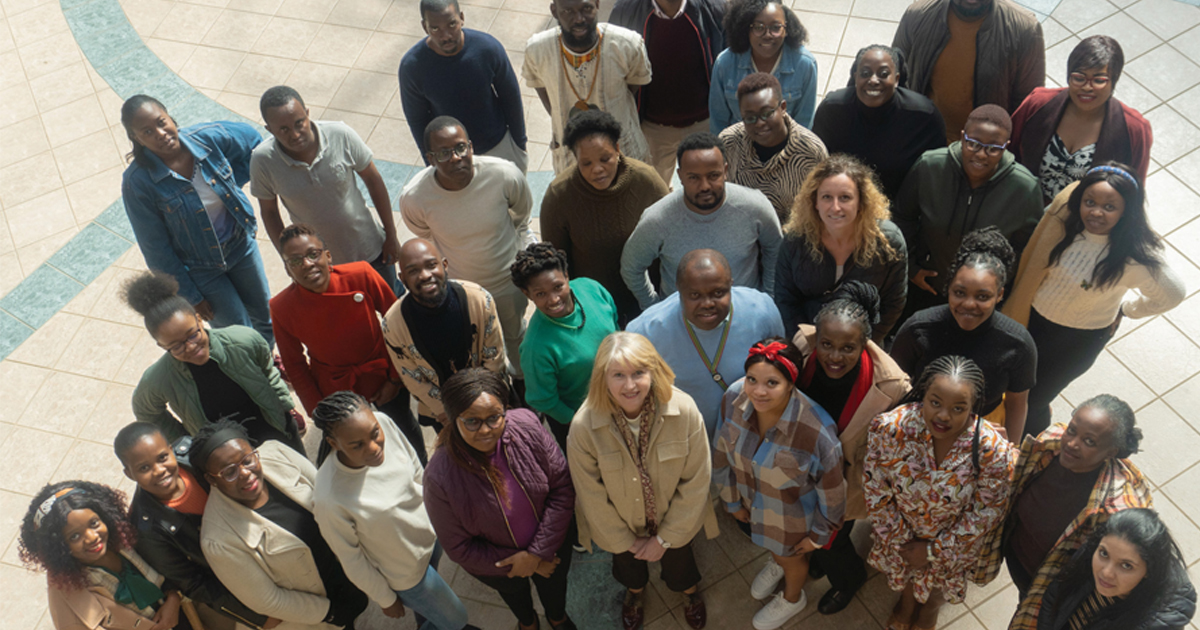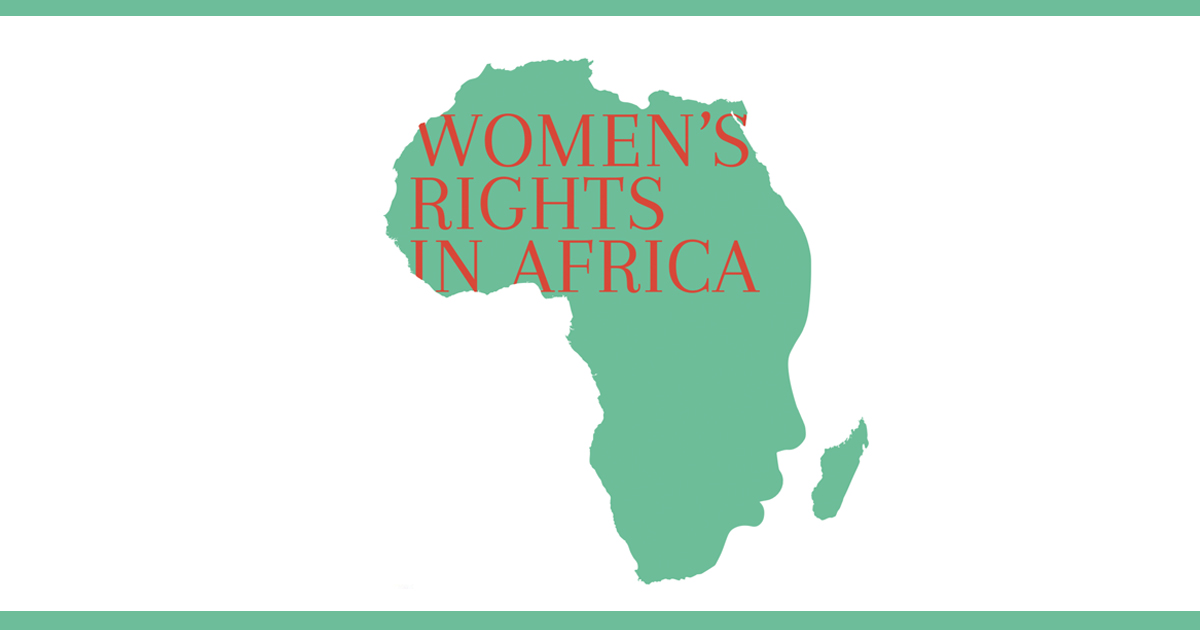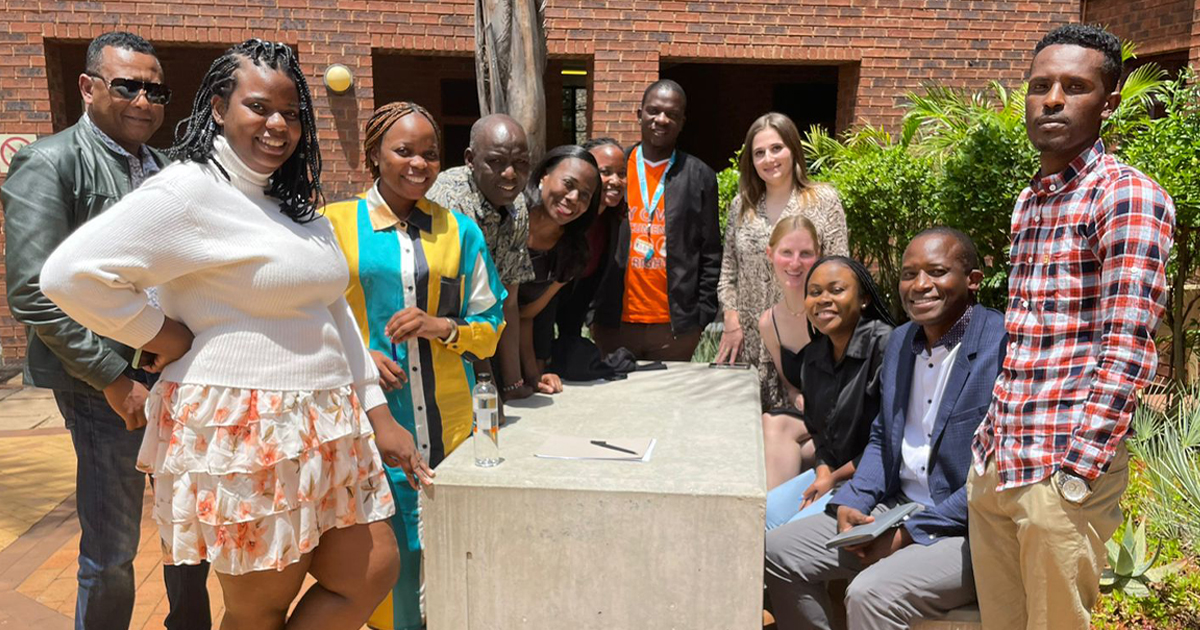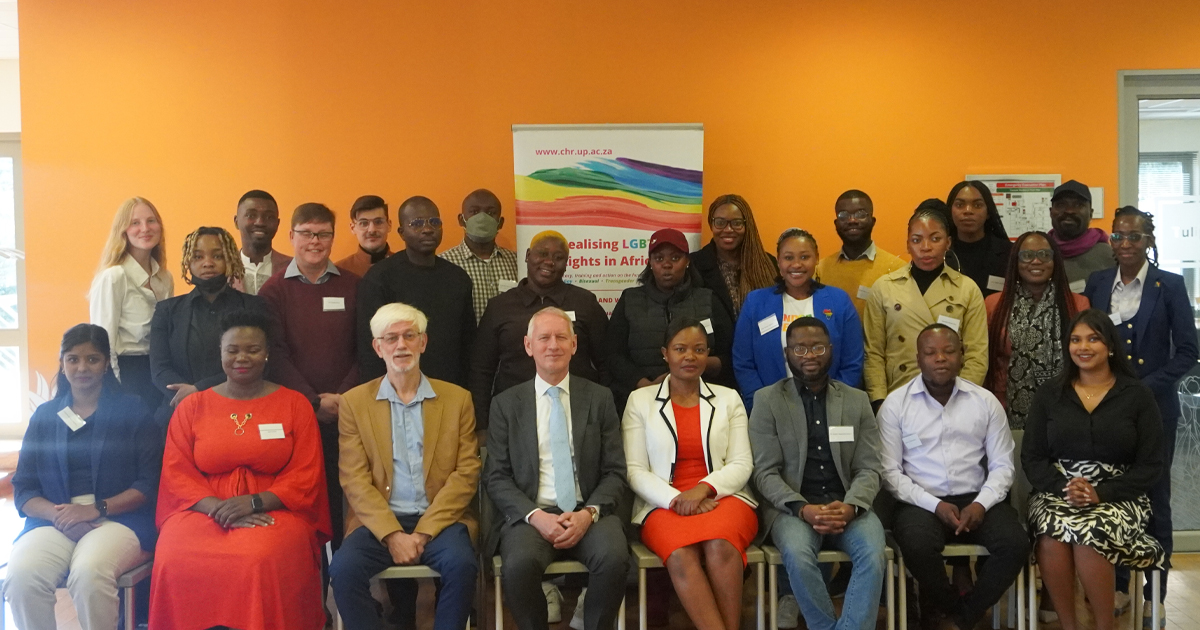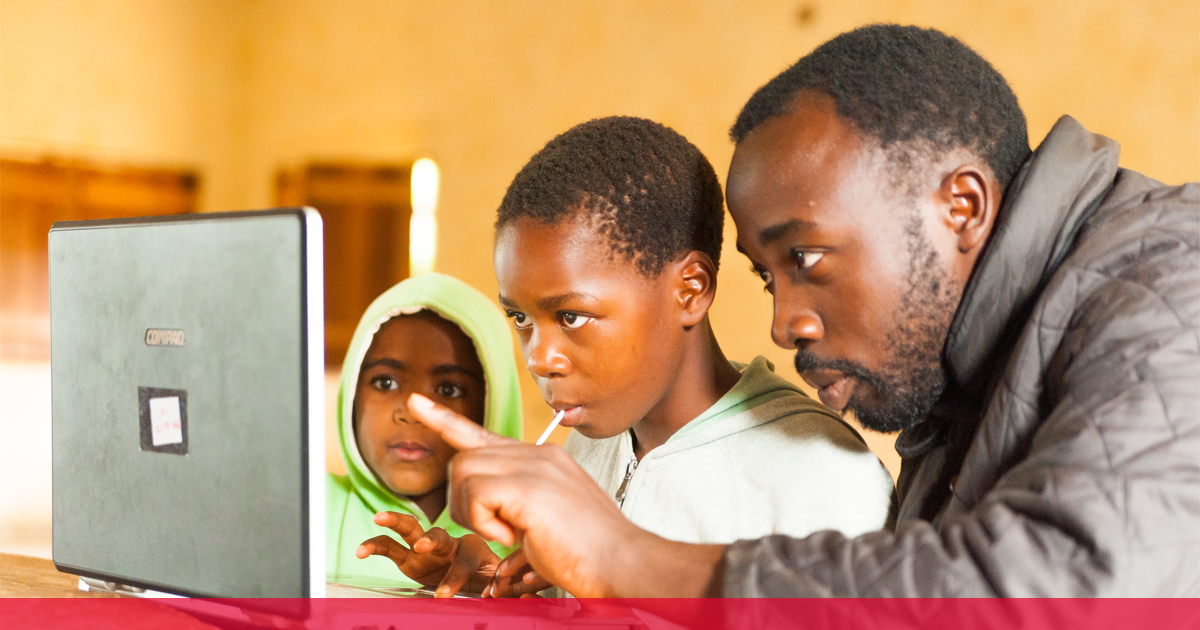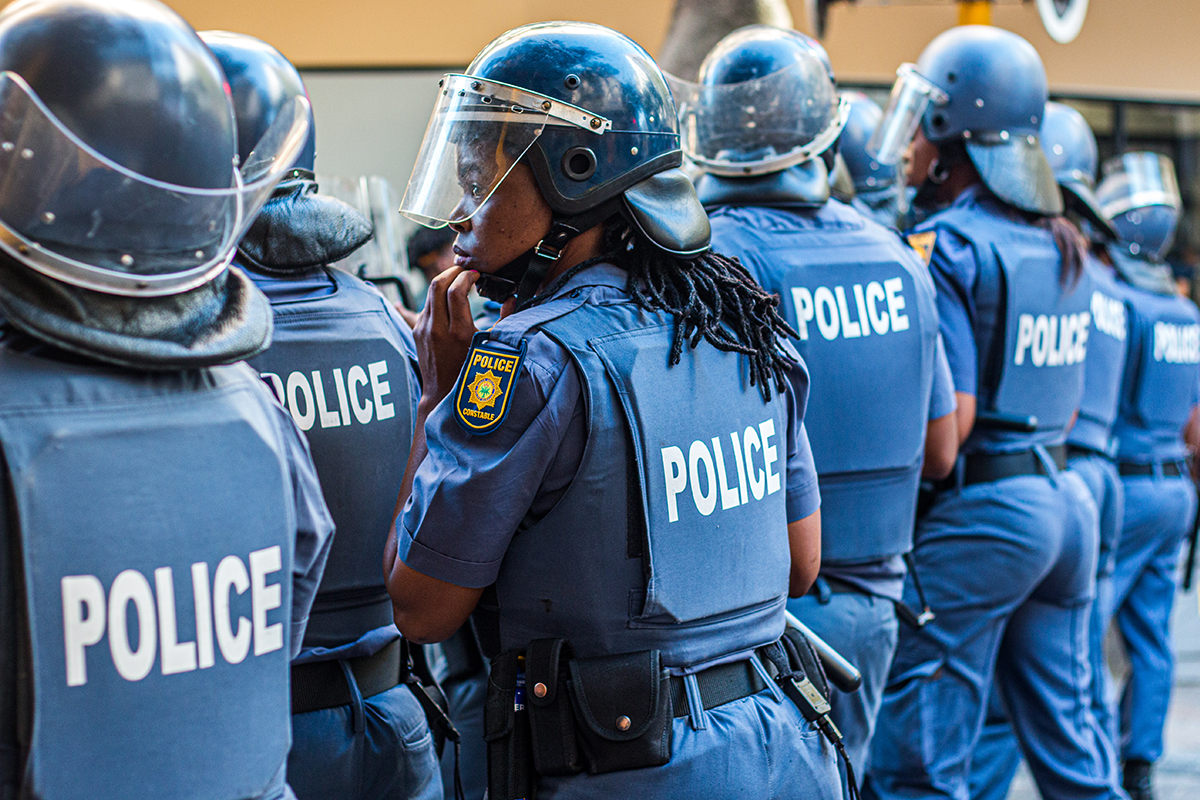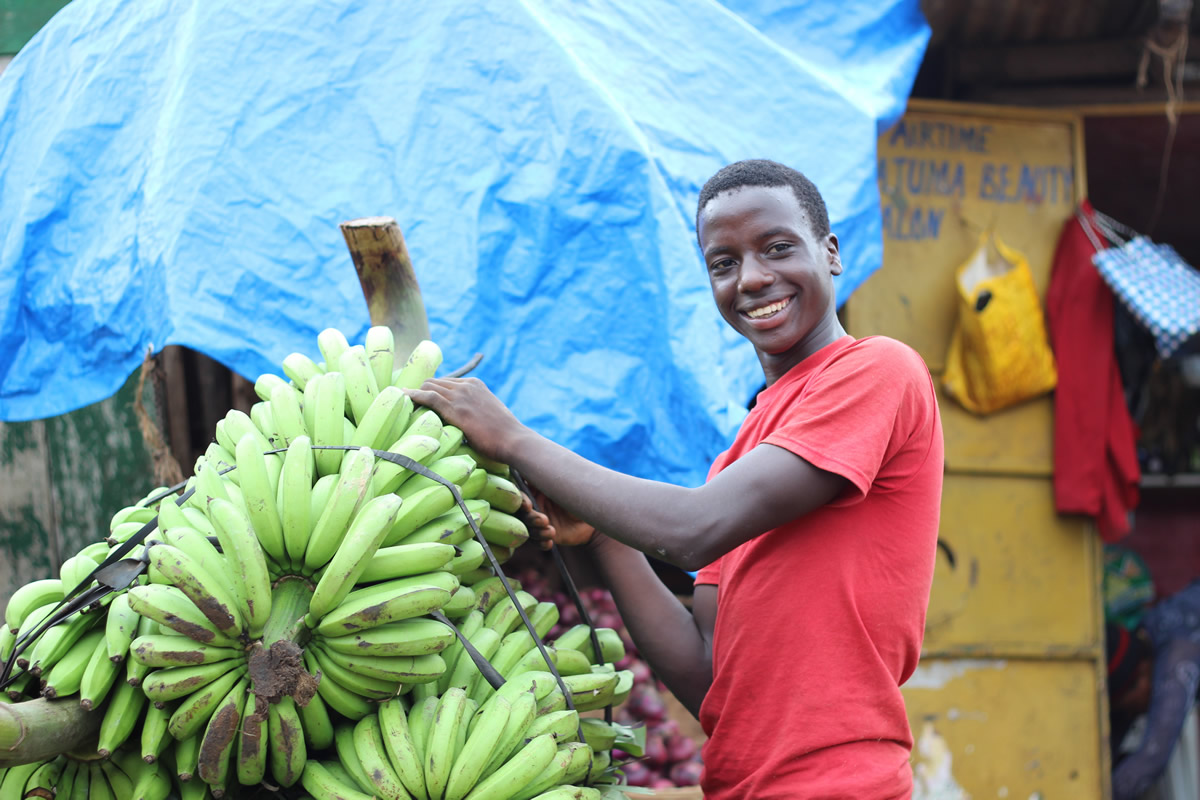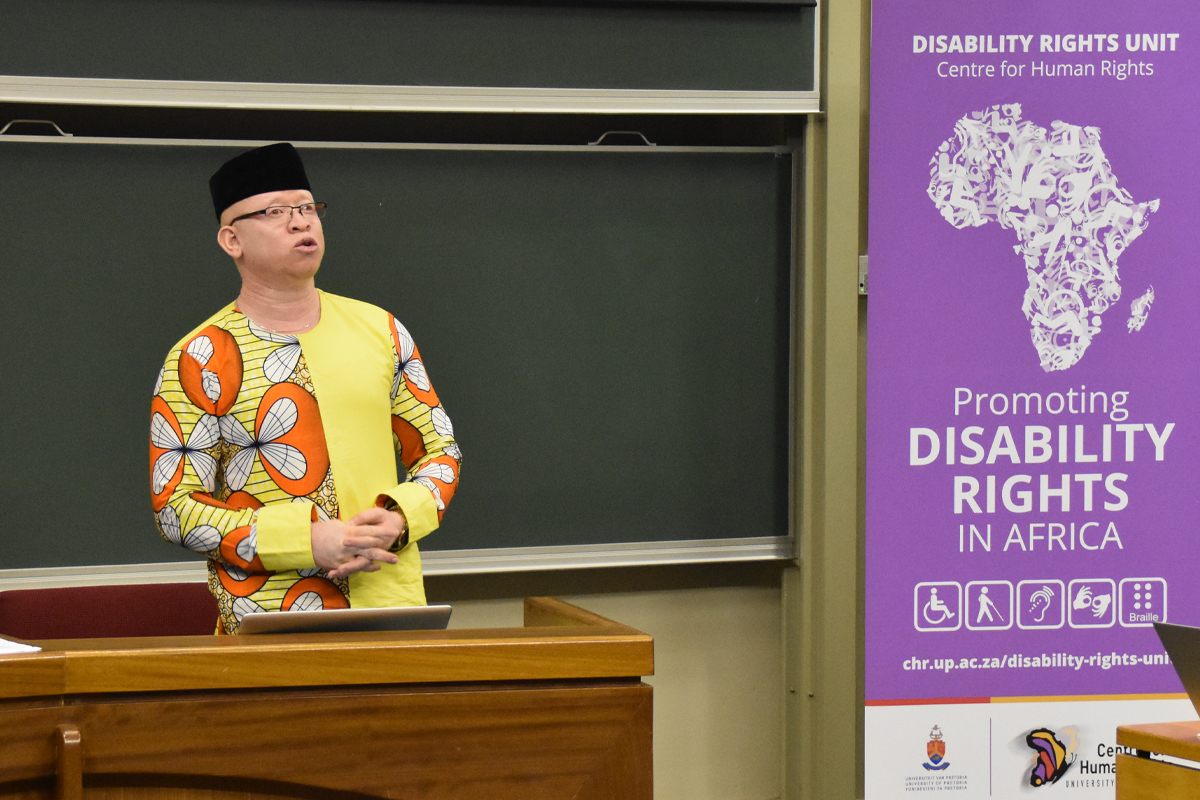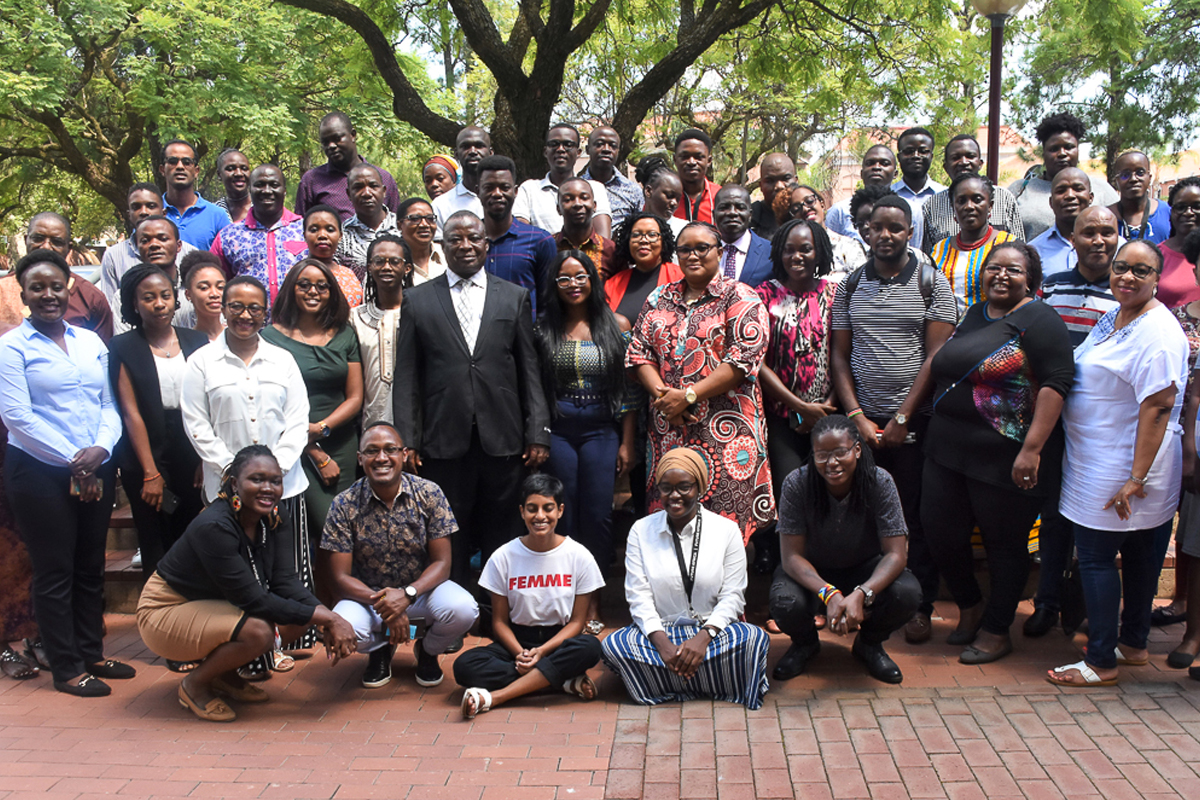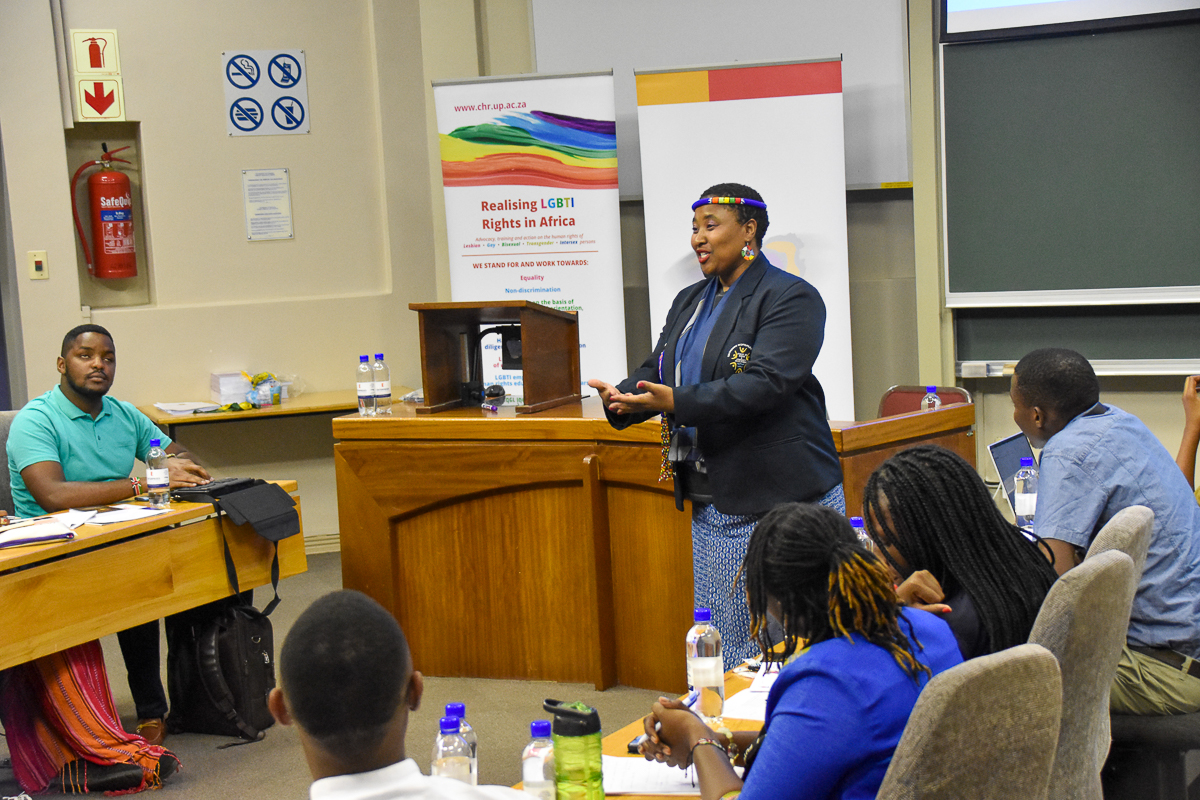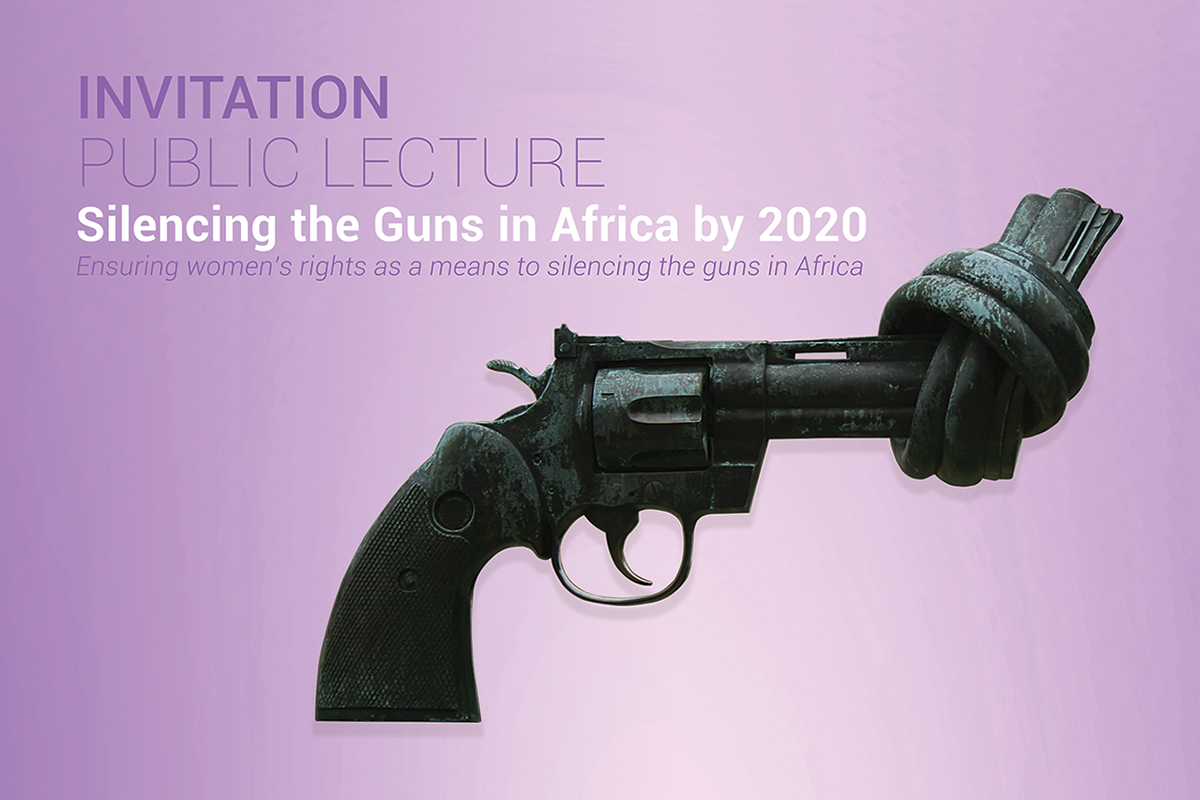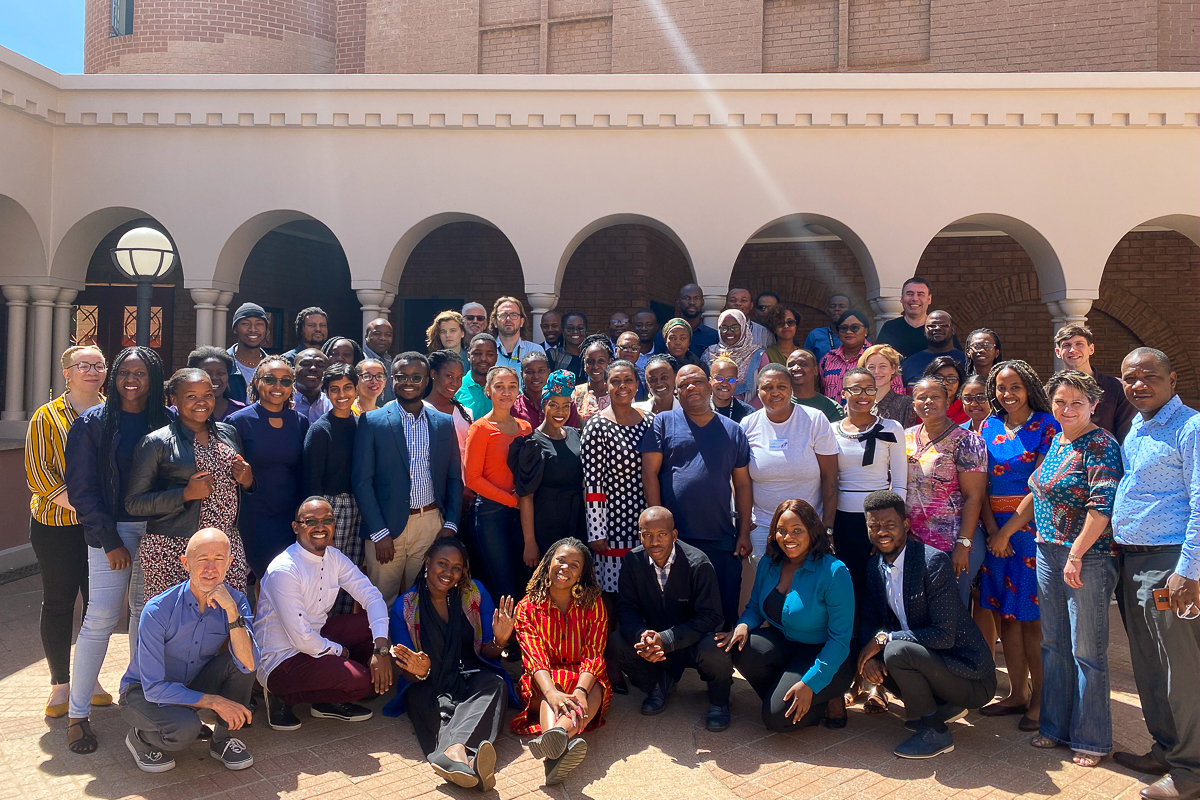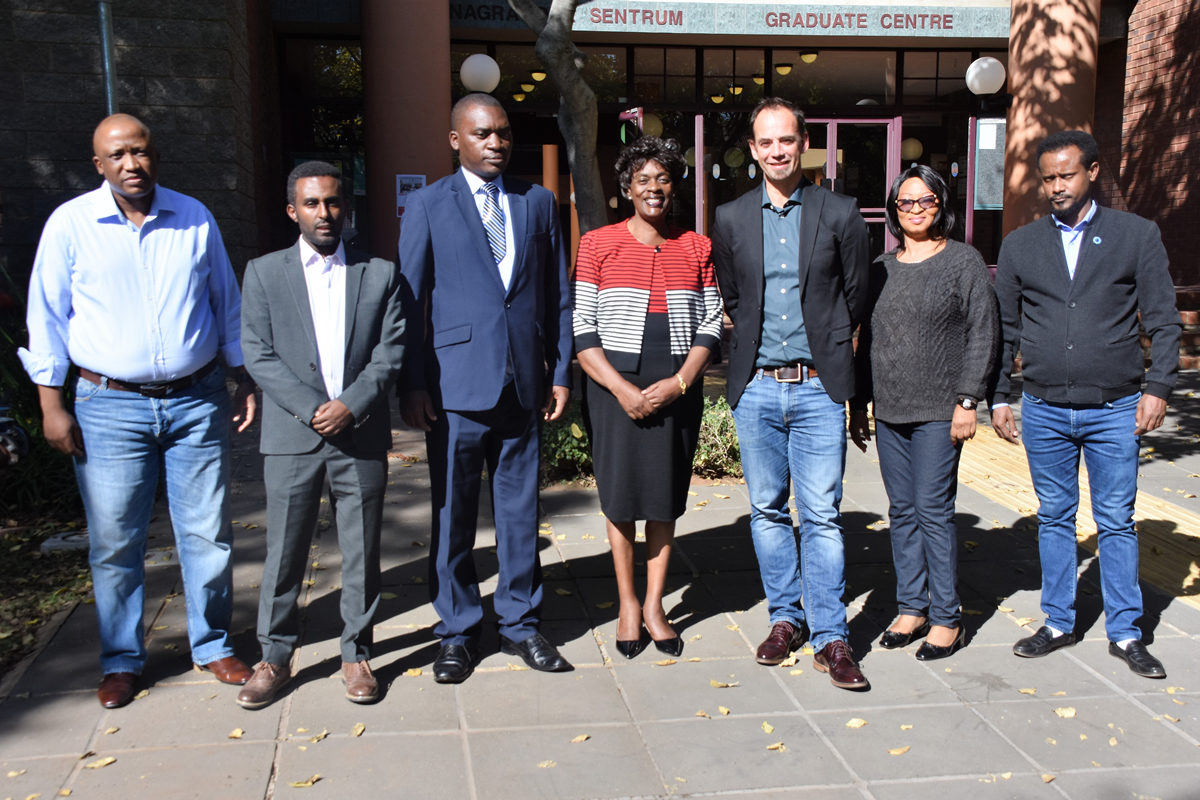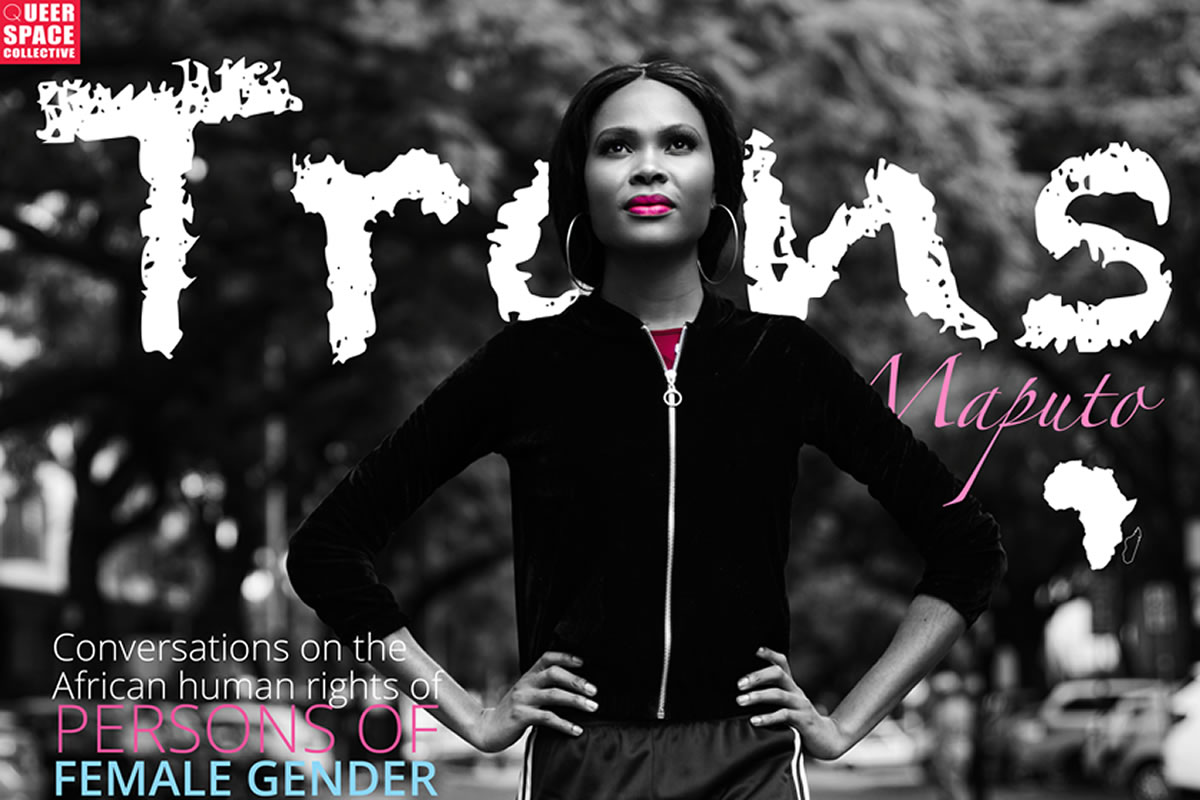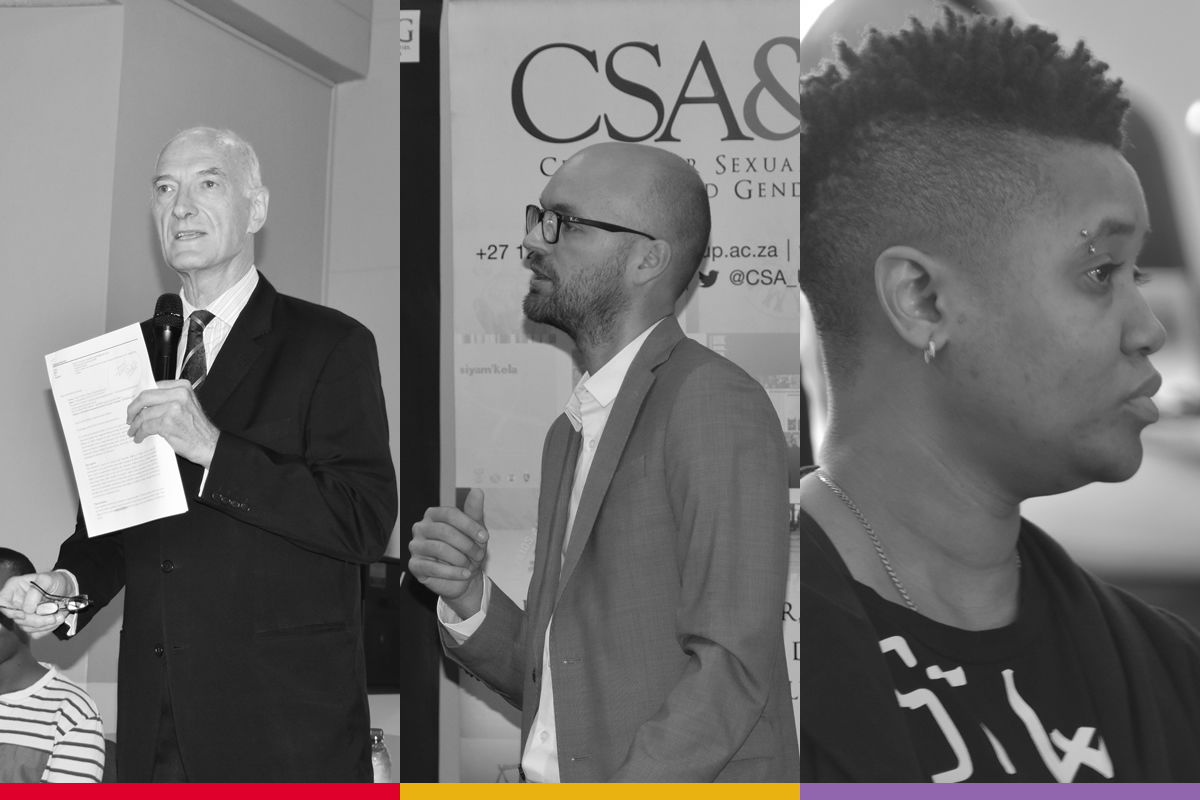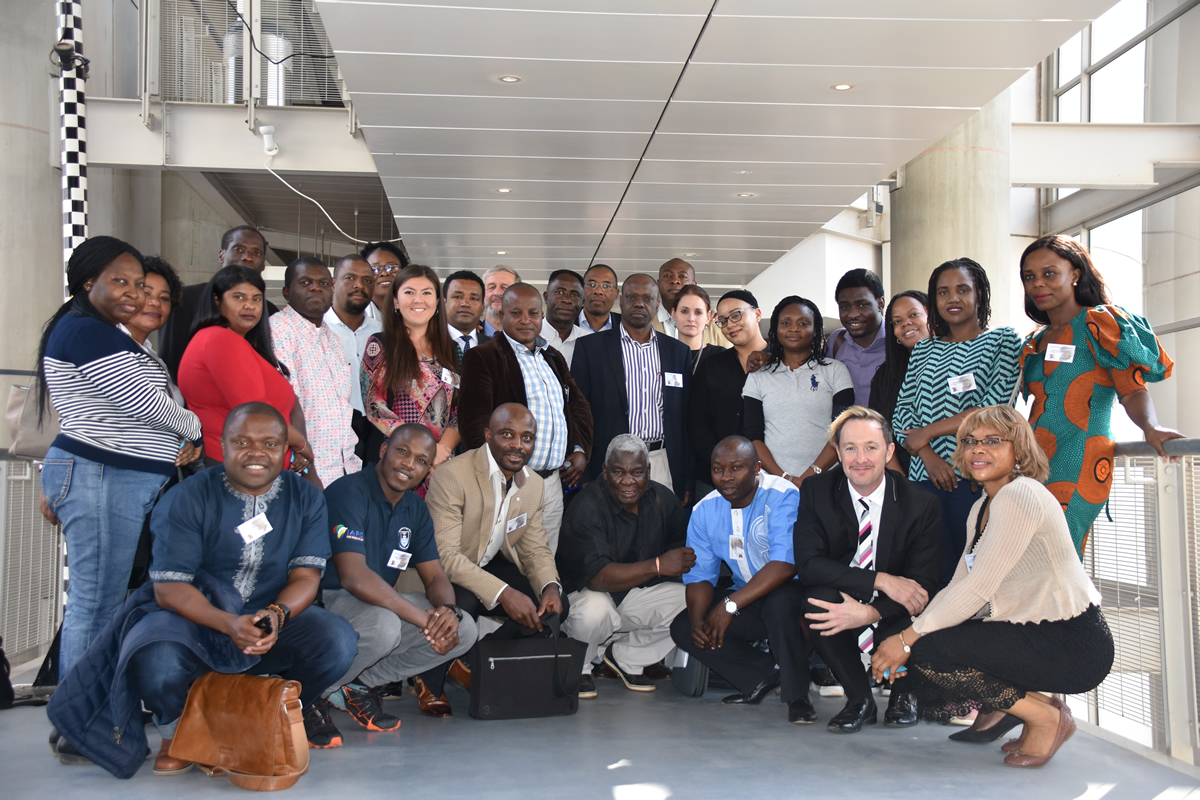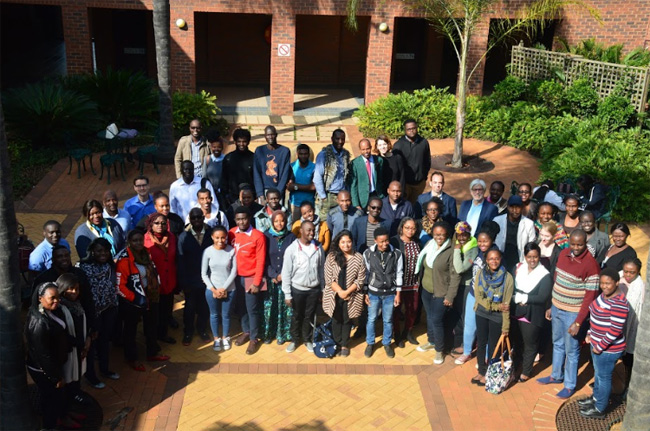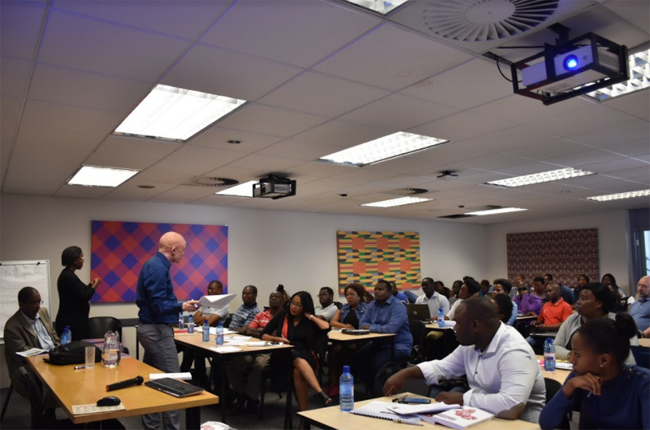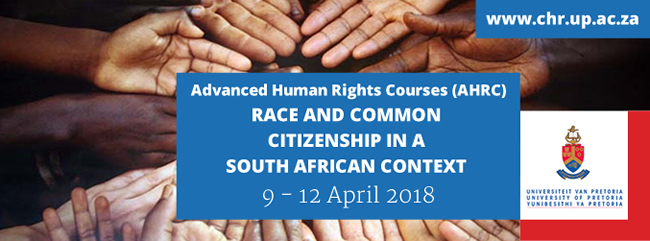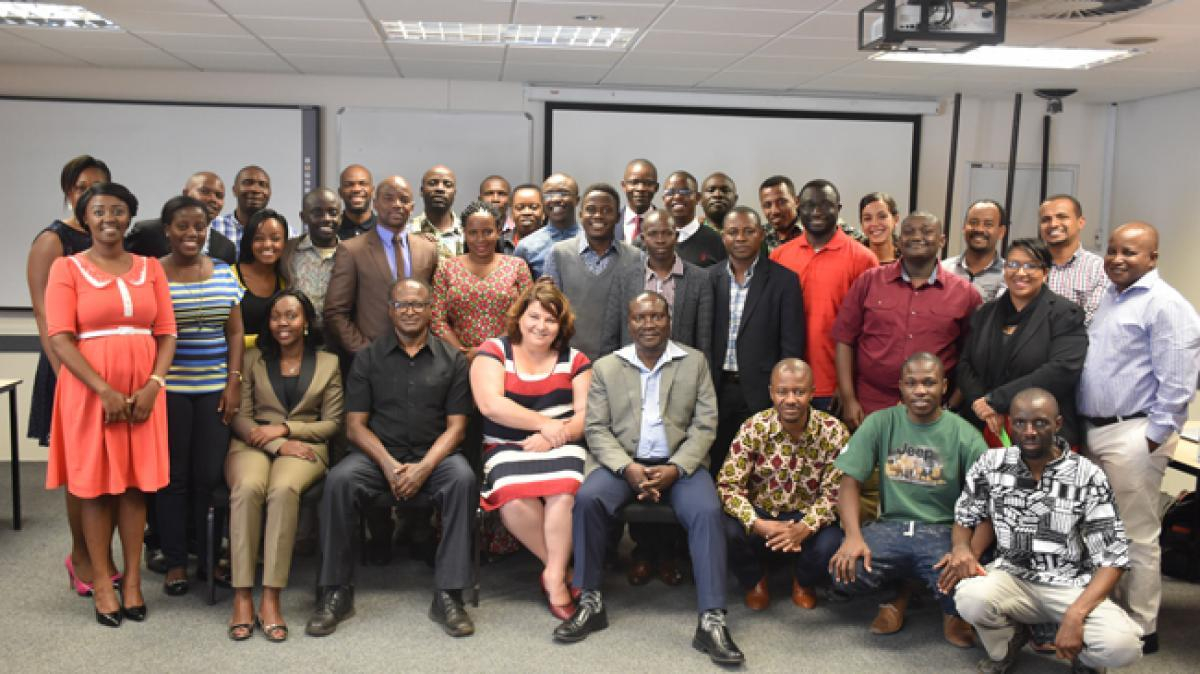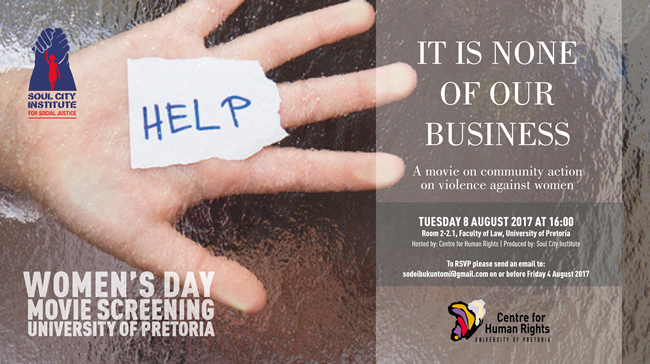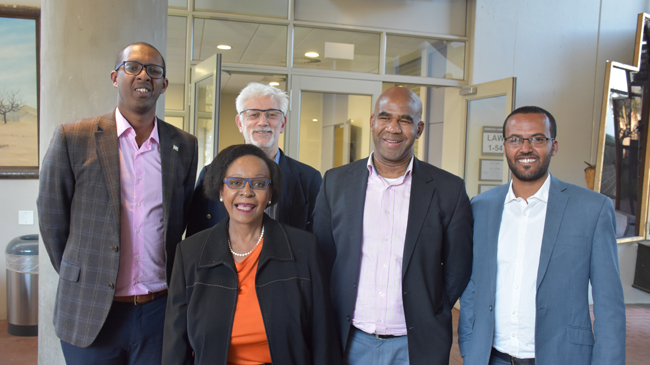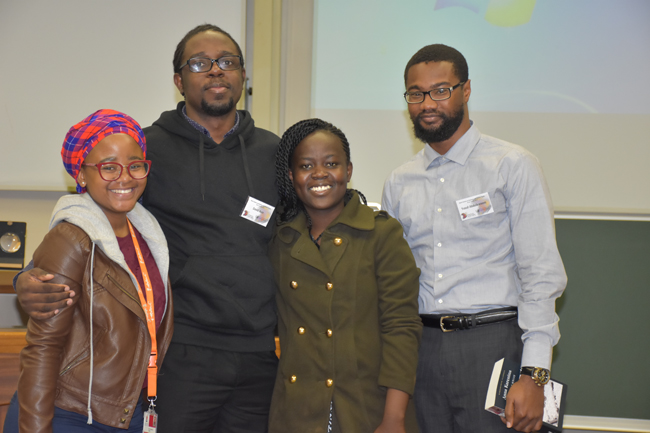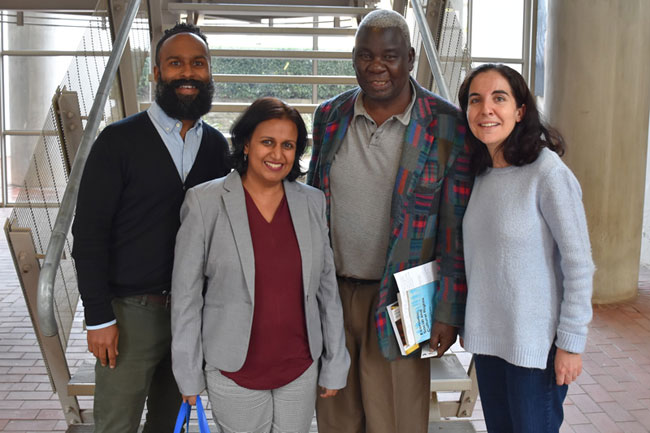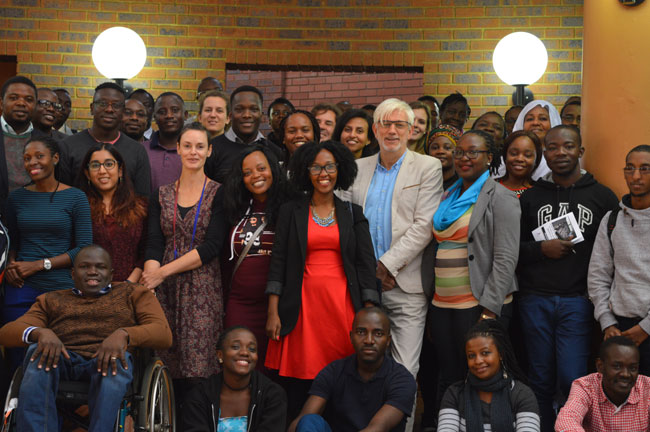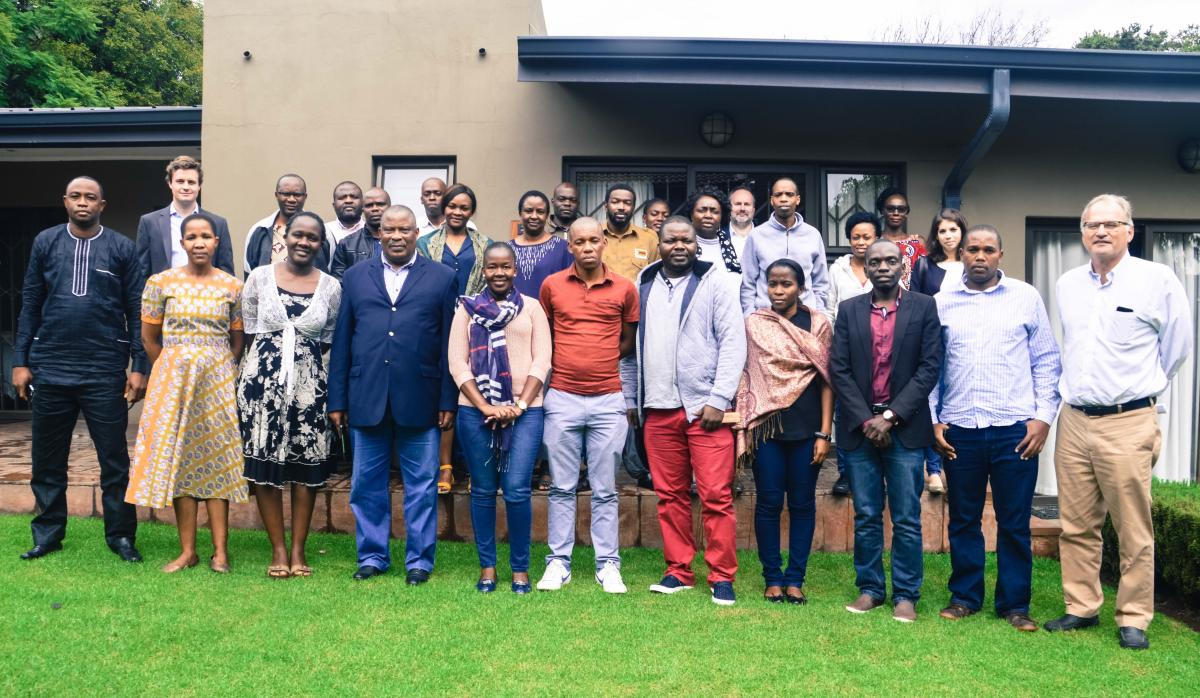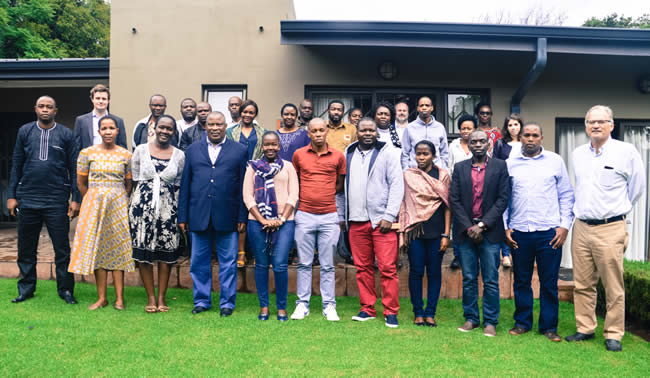- Details
The Centre for Human Rights, the Centre for Child Law both at the Faculty of Law at the University of Pretoria, and the Dullah Omar Institute at the Faculty of Law at the University of the Western Cape successfully hosted the annual Advanced Human Rights Course on Children's Rights in Africa from 19 to 23 June 2023.
- Details
On 15 – 19 May 2023, the Centre for Human Rights, Faculty of Law, University of Pretoria (the Centre) hosted an Advanced Human Rights Course on Women's Rights in Africa.
- Details
The Centre for Human Rights(CHR), in collaboration with the International Working Group for Indigenous Affairs (IWGIA) and the working group on indigenous Populations/ Communities of the African Commission on Human and Peoples Rights hosted their course on 7-11 November 2022. The Course was held in a hybrid format with 20 participants attending physically at graduate center of the University of Pretoria and 35 attending online from countries in Africa and abroad. Participants were drawn from all walks of life including but not limited to students, legal practitioners, Indigenous Rights Advocates and members of indigenous communities, members of government institutions, Public Prosecutors, amongst others.
- Details
The Centre for Human Rights, Faculty of Law, University of Pretoria, with the support of the Embassy of the Kingdom of the Netherlands in South Africa, hosted a week-long capacity-building workshop on strategic litigation and advocacy for LGBTI+ human rights defenders in Africa. The workshop is an annual event organised by the Centre’s Sexual Orientation, Gender Identity and Expression, and Sex Characteristics (SOGIESC) Unit. The workshop aims to capacitate LGBTI+ human rights defenders in Africa with knowledge and skills to conduct strategic litigation and advocacy supporting litigation efforts. This year’s edition took place in Pretoria from 22 to 26 August 2022.
- Details
The Centre for Human Rights,Faculty of Law, University of Pretoria, in collaboration with the Global School on Socio-Economic Rights Adjudication partners: University of Oslo, University of Stellenbosch, Centre for health and human rights at Harvard University,Universidad de Los Andes, and Abo Akademi University hosted their annual Advanced Human Rights Course (AHRC) on the “Judicial Enforcement of Socio-Economic Rights in Africa” from 2 - 6 May 2022.
- Details
The Centre for Human Rights, University of Pretoria, in collaboration with the African Policing Civilian Oversight Forum (APCOF), and African Men for Sexual Health & Rights (AMSHER) hosted the annual advanced human rights short course on Police Oversight and Vulnerable Groups in Africa from 7 to11 September 2020.
- Details
The Centre for Human Rights, University of Pretoria (UP), with the support of the Norwegian Ministry of Foreign Affairs, held its annual Advanced Human Rights Course (AHRC) on the judicial enforcement of socio-economic rights in Africa from 18 to 22 May 2020. The course was delivered for the first time in a virtual format.
- Details
The Centre for Human Rights, Faculty of Law, University of Pretoria, would like to inform applicants and prospective applicants of the Advanced Human Rights Course on the Judicial Enforcement of Socio-Economic Rights in Africa (18 – 22 May 2020) that due to the COVID-19 pandemic and the closure of borders as well as academic institutions in South Africa, the course will be presented in a modified format — a format different from the conventional contact sessions.
- Details
The Advanced Human Rights Courses (AHRC), in collaboration with the Disability Rights Unit of the Centre for Human Rights, University of Pretoria (UP), recently hosted the annual short course on Disability Rights in an African Context, from 9 to 13 March 2020.
- Details
The Centre for Human Rights, University of Pretoria (UP) through its Advanced Human Rights Courses (AHRC) and the Disability Rights Unit is currently hosting the annual Disability Rights in an African Context course.
- Details
The Advanced Human Rights Courses (AHRC), in collaboration with the SOGIESC Unit of the Centre for Human Rights, University of Pretoria (UP), recently hosted the annual short course on Sexual Minority Rights in Africa, from 24 to the 28 February 2020. The course was attended by 58 participants from all over the world, with 20 African countries represented. This year’s participants included students on both the LLM/MPhil (Human Rights and Democratisation in Africa) and the LLM/MPhil (Sexual and Reproductive Rights in Africa) programmes. Also in attendance were doctoral researchers, judicial officers, representatives from the Network of African National Human Rights Institutions (NANHRI), members of civil society, academics and members from the South African Police Services (SAPS).
- Details
COVID-19: Public Lecture postponed
As South Africa faces the locally expanding coronavirus epidemic, the University of Pretoria’s (UP) executive management team has decided to postpone contact classes and to reschedule the academic calendar.
Therefore, the public lecturey, scheduled for 24 March 2020, is postponed. Details regarding the rescheduling of the lecture will be communicated via the Centre's website and social media channels in due course.
We urge our students, staff, friends and colleagues to stay safe as we collectively turn the tide against this pandemic.
- Details
The Centre for Human Rights, University of Pretoria through its Advanced Human Rights Courses (AHRC) and the SOGIESC Unit, is currently hosting the annual Sexual Minority Rights in Africa course.
- Details
The Centre for Human Rights is hosting the annual short course on the Judicial Enforcement of Socio-Economic Rights in Africa from 13 to 17 May 2019. The course is organised by the Advanced Human Rights Courses (AHRC).
This year the Centre is honoured to have 6 African judges attending the course on the judicial enforcement of socio-economic rights in Africa. The judges in attendance are:
- Justice Joan Eyi King (Ghana)
- Justice Musa Ssekaana (Uganda)
- Justice Moroke Alexis Mokhesi (Lesotho)
- Justice Girma Dechasa (Ethiopia)
- Justice Senbeta Abdeta Negasa (Ethiopia) and
- Justice Antonia Guvava (Zimbabwe).
- Details
On so many levels, the last week of February 2019 was a risky leap for the Queer Space Collective, comprising the Centre for Human Rights and the Centre for Sexualities AIDS and Gender, University of Pretoria. It was the maiden edition of the Invitation: Pride and Letters - Queer Literary Festival. The Pride and Letters ran hand in glove with the Advanced Human Rights Course: Sexual Minority Rights 2019, weaving its content through a more narrative and intimate approach than is the tradition. The three themes addressed in the course of the week were: queer exploration; queer resistance and queer celebration. These days have been chronicled in the week’s diary.
- Details
The Advanced Human Rights Courses (AHRC) and the SOGIESC Unit are currently hosting the annual short course on Sexual Minority Rights in Africa. The maiden edition of the Pride & Letters Queer Literary Festival forms part of the week-long programme.
- Details
The Centre for Human Rights hosted the 2nd International Conference on the Right to Development, which took place from the 15 to 17 August 2018. The conference was jointly sponsored by the Centre for Human Rights, University of Pretoria, the American Society for International Law and the Thabo Mbeki African Leadership Institute, University of South Africa. The focus of this year’s theme: Insights into Policies and Practices on the Right to Development, provided participants the opportunity to explore the subject from a broad range of angles, including challenges and prospects for making the right to development a reality, the connection between the Sustainable Development Goals and the realisation of the right to development as well as regional and domestic experiences relating to implementing the right to development.
- Details
The Centre for Human Rights, Faculty of Law, University of Pretoria in collaboration with Norwegian Ministry of Foreign Affairs presented its annual Advanced Human Rights Course on Judicial Enforcement of Socio-Economic Rights in Africa from 14 to 18 May 2018. The course brought together over 60 participants from across Africa and Europe, mainly representing members of judiciary, civil society, National Human Rights Institutions, policy makers, government officials and academia.
- Details
The Centre for Human Rights, University of Pretoria held a one-week intensive short course on Disability Rights in the African context from 12 to 16 March 2018. The course is part of a series of Advanced Human Rights Short Courses the Centre organises and offers to the members of the public. Over 60 participants from over 20 African countries enrolled and attended this year’s course. The participants included: persons with disabilities working in human rights, LLM/MPhil human rights students, Doctoral candidates working on disability rights, human rights activists, government officials, police officers, policy makers and distinguished Professors.
- Details
The Centre for Human Rights, University of Pretoria, will host a one-week intensive short course on Race and Common Citizenship in a South African context from 9 to 12 April 2018.
- Details
The Centre for Human Rights, Faculty of Law, University of Pretoria, in collaboration with International Work Group for Indigenous Affairs (IWGIA) hosted its Advanced Human Rights Short Course on Indigenous Peoples’ Rights in Africa from 25-29 September, 2017. The course brought together 32 participants; from different countries across Africa and Europe, with backgrounds that include: NGO managers, delegates of indigenous communities, academia, government policy makers, civil society, independent community consultants and legal practitioners.
- Details
The Women's Rights Unit, the SOGIE Unit and the Disability Rights Unit at the Centre for Human Rights is organising an advocacy event in commemoration of the National Women's day in South Africa. On the 9th of August 1956 more than 20 000 women of all races marched to the Union Buildings in Protest to amendments to the Pass Law and presented a petition against the idea of women carrying passes in urban areas.
- Details
The Centre for Human Rights, Faculty of Law, University of Pretoria, is currently hosting its third Advanced Human Rights Short Course on Children’s Rights in Africa. It started on Monday 31 July 2017 and runs to Friday 4 August 2017. The short course brings together 35 participants from 10 countries across Africa, with backgrounds that include national human rights institutions, academia, civil society, legal practitioners, prosecutors, teachers, medical professionals and government.
- Details
The Centre for Human Rights, University of Pretoria, hosted its second short course on business and human rights at the University of Pretoria from 10 - 14 July 2017. The event was made possible with support from the United Nations Office of the High Commissioner for Human Rights, Regional Office for Southern Africa. The short course brought together more than 55 participants, from 18 countries across Africa, with backgrounds that include national human rights institutions, academia, civil society, legal practitioners and government.
- Details
Although the right to form civil society organisations and peaceful assembly and association are recognised by international legal instruments; civil society groups and activists continue to face threats and fall victim to oppression every day. The Centre for Human Rights, University of Pretoria hosted a three day intensive short course on Civil Society Law in Africa from 3-5 July 2017. The course brought together several participants from across Africa, mainly representing civil society groups, policy makers, government officials, national human rights institutions and academia.
- Details
The Centre for Human Rights, University of Pretoria hosted its annual short course on the judicial enforcement of socio-economic rights in Africa from 15-19 May 2017. The course brought together 60 participants from across Africa, mainly representing civil society, members of judiciary, national human rights institutions, policy makers, government officials and academia.
- Details
The right to life is often described as a supreme human right, but it is clearly under pressure worldwide.The Centre for Human Rights, University of Pretoria for the first time hosted its first annual short course on the right to life from 10-13April 2017. The course brought together several participants from across Africa, mainly representing civil society, national human rights institutions, police officers, prosecutors and academia.
- Details
The right to life is often described as a supreme human right, but it is clearly under pressure worldwide.The Centre for Human Rights, University of Pretoria for the first time hosted its first annual short course on the right to life from 10-13April 2017. The course brought together several participants from across Africa, mainly representing civil society, national human rights institutions, police officers, prosecutors and academia.
Experts in the field who lectured and participated on panel discussion consisted of: Professor Christof Heyns, Director Institute for International and Comparative Law in Africa University of Pretoria and Former United Nations Special Rapporteur on extrajudicial, summary or arbitrary executions; Commissioner Solomon Dersso, African Commission on Human and Peoples’ Rights; Commissioner Med Kaggwa, Member of the African Commission on Human and Peoples’ Rights’ Working Group on the Death Penalty and Extra-Judicial, Summary or Arbitrary Killings in Africa; Dr Thomas Probert, Institute for International and Comparative Law in Africa; Stuart Maslen, Institute for International and Comparative Law in Africa; Valentina Cadelo, Geneva Academy of International Humanitarian Law and Human Rights; Dr Japhet Biegon, Amnesty International; Sarah Swart, International Committee of the Red Cross; Sylvie van Lammeren, International Committee of the Red Cross; Dr Thompson Chengeta, Institute for International and Comparative Law in Africa and Adebayo Okeowo, Centre for Human Rights. The course is the first of its kind presented by an academic institution in Africa.

